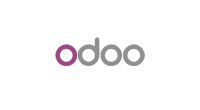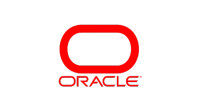Comparing ERP Power Moves
In the evolving world of enterprise resource planning, few matchups stir more debate than Odoo versus Oracle. One is a cloud-native, modular disruptor; the other, a seasoned powerhouse with a long-standing enterprise pedigree. The decision between these two platforms is less about feature checklists and more about strategic alignment. Businesses today must ask: do we need agility or legacy assurance, rapid ROI or deep-rooted infrastructure? Understanding the philosophies, architectures, and deployment dynamics of each solution reveals where the real value lies.
Market Positioning: Legacy Titan vs Agile Challenger
Oracle commands recognition, synonymous with enterprise-scale stability and compliance. It has served Fortune 500 companies for decades, making it a go-to for heavily regulated industries or multinational corporations requiring granular control. Odoo, in contrast, positions itself as the nimble innovator—modular, open-source, and constantly evolving. It thrives with SMEs, startups, and agile enterprises seeking adaptability without being encumbered by legacy rigidity. While Oracle dominates traditional verticals, Odoo captures modern businesses seeking speed and cost-effective scalability.
Implementation Approach: Monolith vs Modularity
Oracle implementations often resemble architectural megaprojects—multi-month, multi-consultant endeavors with rigid milestones and deep integration. Its breadth comes with complexity, demanding exhaustive planning and resource allocation. Odoo breaks that mold. Its modular design lets businesses implement only what they need—CRM, accounting, inventory—then scale gradually. This approach accelerates deployment, reduces initial overhead, and supports iterative optimization. The difference is stark: Oracle builds fortresses; Odoo sets up agile hubs.
Customization and User Flexibility
Modern organizations require systems that mold to their workflows—not the other way around. Oracleoffers robust customization, but it's often tied to costly consulting, proprietary languages, and drawn-out dev cycles. Odoo counters with open-source flexibility, a vibrant developer ecosystem, and drag-and-drop configurability that empowers internal teams. Whether tailoring approval flows or automating industry-specific processes, Odoo lowers the barrier to innovation. Oracle may offer deeper vertical templates, but Odoo wins on speed and democratization of customization.
Integration Ecosystem and Compatibility
ERP systems live or die by their ability to integrate. Oracle boasts extensive out-of-the-box integrations with its own suite—Finance, HCM, SCM—and dominant third-party enterprise tools. But these often require expensive middleware and specialized consultants. Odoo takes a more accessible path. With native APIs, community-built connectors, and simplified integration flows, it plugs into CRMs, ecommerce, logistics platforms, and payment gateways with ease. For companies seeking agile digital ecosystems, Odoo delivers with less friction and lower cost.
Licensing and Cost of Ownership
Oracle’s licensing model is traditional and intricate—often involving per-user fees, module-based pricing, and long-term contracts. Maintenance and upgrade costs add to the equation. For large corporations with predictable budgets, this can be acceptable. Odoo, by contrast, is transparent and scalable. Its Community edition is open-source and free, while the Enterprise edition offers full-stack access for a fraction of Oracle’s price point. Odoo’s pay-as-you-grow model significantly lowers TCO, making it a magnet for cost-conscious innovation-driven enterprises.
User Experience and Interface Design
User adoption hinges on intuitive design. Oracle’s UI has evolved but still retains enterprise-grade complexity. New users often face a steep learning curve. Odoo flips the script with a consumer-grade experience—clean dashboards, mobile-friendly layouts, and role-based views. Its UX philosophy aligns with tech-savvy workforces that expect ease and elegance. This directly impacts productivity, onboarding speed, and system engagement across departments.
Scalability and Cloud Readiness
Both platforms are cloud-capable, but their journeys differ. Oracle has migrated from on-prem legacy to a full-fledged cloud suite via Oracle Cloud Infrastructure. It's powerful, but transitioning can be resource-intensive. Odoo was born in the cloud era. With options like Odoo.sh and third-party cloud hosting, it offers flexibility, speed, and control without vendor lock-in. While Oracle might be ideal for highly complex, large-scale deployments, Odoo’s scalability is more aligned with today’s fast-growing digital businesses.
ROI Timelines and Business Value Realization
Oracle implementations often span 12 to 24 months before full benefits are realized. While the long-term gains are significant, the upfront investment—both financial and human—is steep. Odoo turns this on its head. Its modular deployment, rapid configuration, and lower cost structure allow businesses to achieve ROI within 6 to 12 months. Faster time-to-value and measurable gains in operational efficiency give Odoo an edge for businesses prioritizing agility and early wins.
Comparison Table: Odoo vs Oracle at a Glance
|  |  |
Deployment | Modular, Cloud/On-Prem | Enterprise Suite, Cloud/On-Prem |
Licensing | Transparent, Pay-as-you-grow | Complex, Tiered Pricing |
Customization | Open-Source, Flexible | Proprietary, Consultant-Driven |
Integration | API-Ready, Lightweight | Extensive but Complex |
User Interface | Intuitive, Mobile-First | Robust but Dense |
Time to ROI | 6–12 Months | 12–24 Months |
Cost of Ownership | Low to Moderate | High |
Making the Smart ERP Move
Odoo and Oracle are not direct substitutes—they serve different strategic ambitions. Oracle remains the heavyweight for enterprises needing regulatory depth and global infrastructure. Odoo is the smart strategist’s tool—lean, adaptable, and ROI-driven. The right choice hinges on where your organization is today and where it aims to be. For growing businesses seeking an ERP that adapts, innovates, and scales without excess baggage, the DIS Team offers tailored Odoo implementations grounded in real-world impact. Contact DIS to schedule a free demo and explore a future-ready ERP fit.


